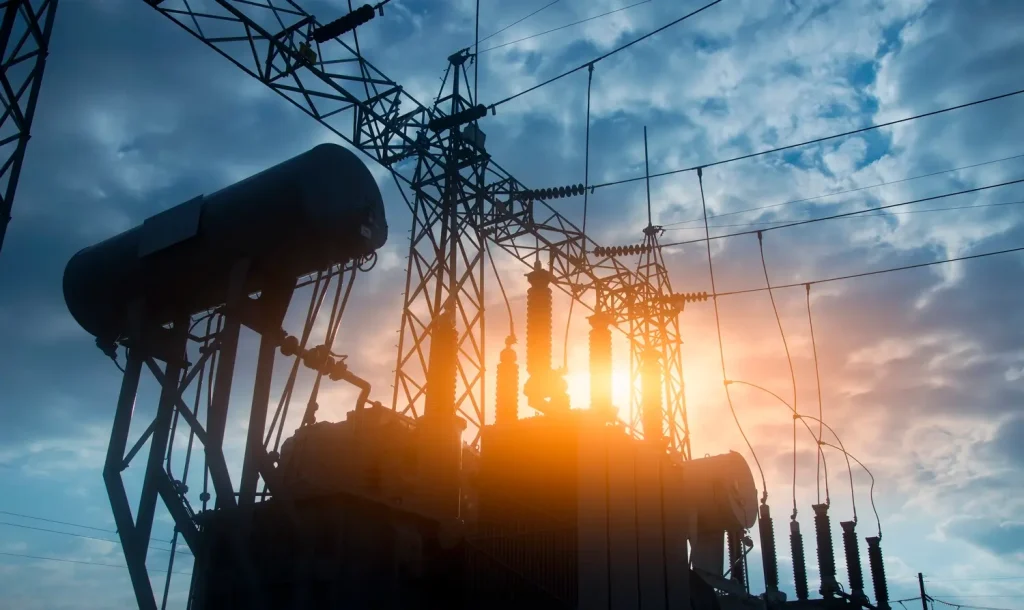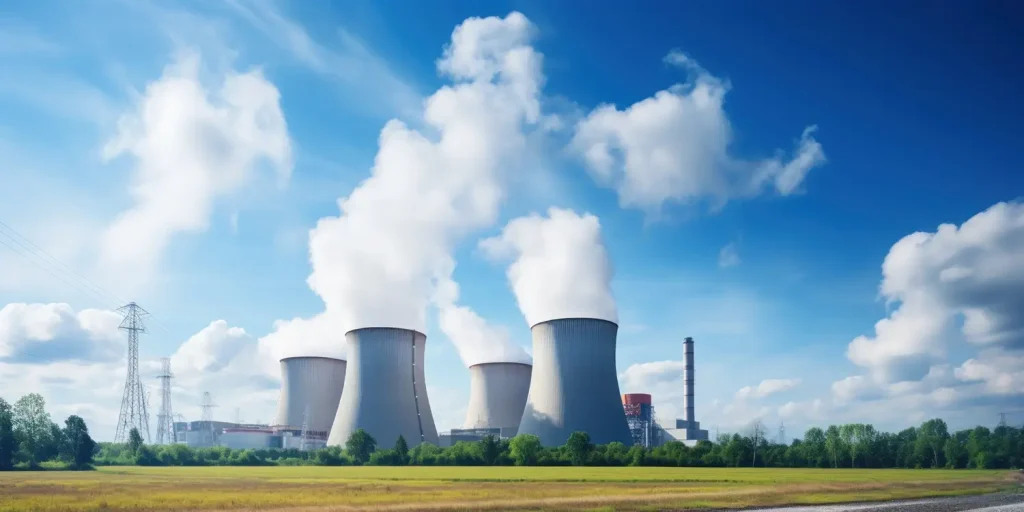Energy Transition in the Power Sector: Key Highlights from MEMR Regulation 10/2025

To support Indonesia’s Net Zero Emissions (“NZE”) target by 2060 or sooner, the Ministry of Energy and Mineral Resources has issued Regulation Number 10 of 2025 on the Roadmap for Energy Transition in the Power Sector (“MEMR Regulation 10/2025”), which outlines the roadmap for power sector decarbonization. This regulation focuses on the early retirement of coal-fired power plants (“CFPPs“), renewable energy expansion, and emerging technologies such as hydrogen and nuclear. While policy direction is clear, implementation still faces regulatory and operational challenges. This article provides key updates and insights for businesses navigating the evolving energy transition landscape, highlighting regulatory developments, implementation hurdles, and strategic considerations to anticipate risks and unlock opportunities in Indonesia’s low-carbon economy.
Indonesia’s commitment to achieving NZE by 2060 or sooner is increasingly evident with the issuance of MEMR Regulation 10/2025. This regulation marks an important milestone in shaping the transformation of Indonesia’s power sector, from accelerating the early retirement of CFPPs to envisioning the development of future energy sources, such as nuclear and hydrogen.
For business actors, particularly in the energy sector, understanding the provisions of MEMR Regulation 10/2025 is not only a matter of compliance but also a key consideration in designing adaptive, resilient, and sustainable business strategies in an increasingly complex regulatory and industrial environment.

Read More: Patent or Trade Secret
MEMR Regulation 10/2025: Anchor of Indonesia’s Energy Transition
MEMR Regulation 10/2025 serves as the implementing guideline mandated by the Presidential Regulation Number 112 of 2022 on the Acceleration of Renewable Energy Development for Electricity Supply, which reinforces the government’s commitment to energy transition. This regulation seeks to systematically reduce emissions in the power sector, supporting Indonesia’s target of achieving NZE by 2060 or sooner.
Beyond its function as a roadmap, MEMR Regulation 10/2025 offers a strategic signal to the private sector; it translates national climate commitments into regulatory directives, allowing businesses to anticipate where operational and investment realignments may be required. With a growing focus on the early retirement of CFPPs and the future role of technologies such as hydrogen and nuclear, this regulation marks a shift toward a more diversified and forward-looking energy system.
Energy Transition Roadmap: From Policy to Practice
Amid rising electricity demand, the government projects that Indonesia’s total installed power capacity must grow by an average of 9.6 GW annually to reach 443 GW by 2060. Most of this additional capacity is expected to come from new and renewable energy (“NRE”) sources, particularly variable renewable energy (“VRE”) such as solar and wind.
MEMR Regulation 10/2025 also sets a CO2 emission peak target in 2037, with emissions expected to decline sharply as coal-based power generation is gradually replaced by NRE power plants and integrated low-carbon technologies. To support this transformation, MEMR Regulation 10/2025 sets out nine key strategies, including accelerating biomass co-firing and diesel conversion, restricting the construction of new CFPPs, and advancing green hydrogen, nuclear, and smart grid initiatives. These strategies demonstrate that the government’s focus extends beyond merely power generation, but to also focus on bolstering the development of infrastructure and technology necessary to ensure a reliable national power system.
However, implementation challenges persist. While VRE receives priority, project development like rooftop and floating solar PV installations faces cross-ministerial permitting hurdles and a lack of detailed technical regulations. Smart grid and super grid plans, which are needed to address mismatches between generation potential and demand centers, remain in long-term planning phases.
Energy storage incentives (e.g., Battery Energy Storage System, “BESS”) remain under study. The current policy focus is more inclined toward solar power plants (Pembangkit Listrik Tenaga Surya, “PLTS”), which are more affordable and mature compared to hydropower and geothermal power plants that face longer development cycles and greater regulatory complexity in conservation areas.
Overall, this roadmap offers a strong signal for energy sector businesses to realign investment portfolios in line with long-term government policies while recognizing that the regulatory ecosystem and supporting technologies continue to evolve.

Read more: Labour Law Compliance
Bridging the Regulatory-Operational Gap
Despite the ambitious roadmap outlined in MEMR Regulation 10/2025, a systemic disconnect persists between policy formulation and practical implementation. While implementing regulations have been issued, such as MEMR Regulation Number 16 of 2024 on Carbon Storage Activities (“MEMR 16/2024”) and Minister of Finance Regulation Number 5 of 2025 on Fiscal Incentives and Government Guarantees for NRE Projects (“MOF 5/2025”), which support MEMR 10/2025, implementation gaps continue to be addressed.
Within Indonesia’s energy transition framework, regulatory development for emerging sectors like hydrogen and nuclear continues to progress. The Indonesian government has taken an important first step by launching the National Hydrogen and Ammonia Roadmap in April 2025, with institutional governance structures currently being finalized through the forthcoming Government Regulation on Hydrogen Governance. The nuclear sector is experiencing similar developments, where the establishment of dedicated implementing body and the updating of the Nuclear Energy Law are advancing. The project tender mechanism also remains pending as the regulatory framework takes shape.
In implementing the early retirement of CFPPs, Indonesia faces complex technical challenges. One prominent case demonstrates both the progress and remaining hurdles in this transition, where despite a non-binding agreement signed at COP28 to bring forward the retirement from 2042 to 2035, the project awaits finalisation of international funding. Still, other unresolved issues continue to hinder progress, such as legal risks for PLN, compensation schemes, and the cost estimated at USD 250–300 million. Hence, from our perspective, this example highlights the multifaceted nature of early retirement, from legal and financial risks to regulatory uncertainties—highlighting the need for actionable implementing policies beyond normative commitments.
In parallel, Indonesia continues to make progress on renewable energy development while working to fully realize its ambitious targets. Current implementation shows promising foundations are being laid, with no further opportunities to strengthen the policy ecosystem nor to accelerate deployment. With fiscal and guarantee frameworks being issued, we anticipate forthcoming technical regulations for VRE projects and energy storage integration. Meanwhile, MEMR 16/2024 provides a foundation for Carbon Capture and Storage (“CCS”), and Carbon Capture, Utilization and Storage (“CCUS”), but clear investment pathways and incentive structures for the private sector are still evolving.
The hydrogen and nuclear sectors also warrant close observation. The Government Regulation on Hydrogen Governance, currently under development, will cover taxonomy, supply chain, certification, and licensing system, providing clearer direction for early-stage investors. Meanwhile, although a viable investment scheme for nuclear power has yet to be finalized, the government’s plan to establish a dedicated institution, in line with IAEA requirements, signals a long-term commitment that stakeholders may want to anticipate.
These realities underscore the persistent gap between strategic policy vision and field readiness. This raises a key question: How will Indonesia convert its CFPP retirement policy into consistent, bankable execution—and what roles can stakeholders play in shaping the implementation framework?
A Note for Business Stakeholders
For energy businesses, success will increasingly depend not only on operational efficiency but also on the ability to anticipate regulatory changes and to align with evolving policy directions. In a constantly evolving energy transition landscape, business strategies should be designed with operational flexibility, infrastructure readiness, and measurable sustainability in mind. This requires proactive investment in low-carbon technologies, a comprehensive understanding of green financing mechanisms, and active engagement in policy discussions to ensure that business interests are accommodated.
Proactive legal and policy support becomes increasingly important in such a dynamic landscape. Timely and data-driven strategic advice enables companies to not only mitigate risk but also leverage regulatory momentum as a catalyst for future business growth.
For further information or legal assistance, please contact us at ADCO Law.
***
About ADCO Law:
ADCO Law is a law firm that offers clients a wide range of integrated legal services, including commercial transactions and corporate disputes in a variety of industry sectors. Over the course of more than a decade, we have grown to understand our clients’ industries and businesses as well as the regulatory aspects. In dealing with business dynamics, we provide comprehensive, solid legal advice and solutions to minimize legal and business risks.
From Upstream to Downstream, We Understand Your Industry. In complex transactions and certain cases, we actively engage with financial, tax, and environmental specialists, accountants, and law firms from various jurisdictions to add value to our clients. Our strong relationships with Government agencies, regulators, associations, and industry stakeholders ensure that our firm has a holistic view of legal matters.
ADCO Law is a Proud Member of the Alliott Global Alliance (AGA) in Indonesia. Founded in 1979, AGA is one of the largest and fastest-growing global multidisciplinary alliances, with 215 member firms in 95 countries. As a law firm, we also believe in regeneration. To stay abreast of business changes and stay relevant, our formation of lawyers is comprised of the top graduates from Indonesian and international law schools.
Contact our Business Development team for further information:
Alvin Mediadi, Business Development Manager, Indonesia

